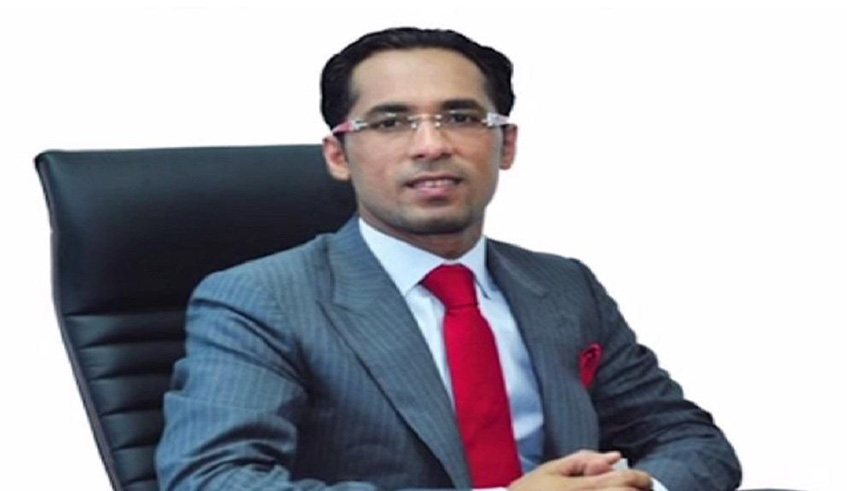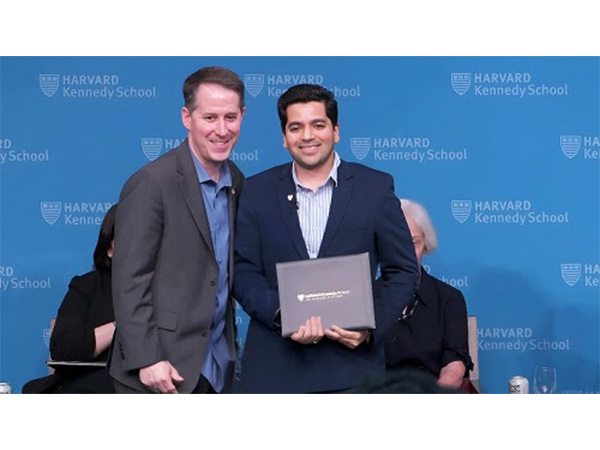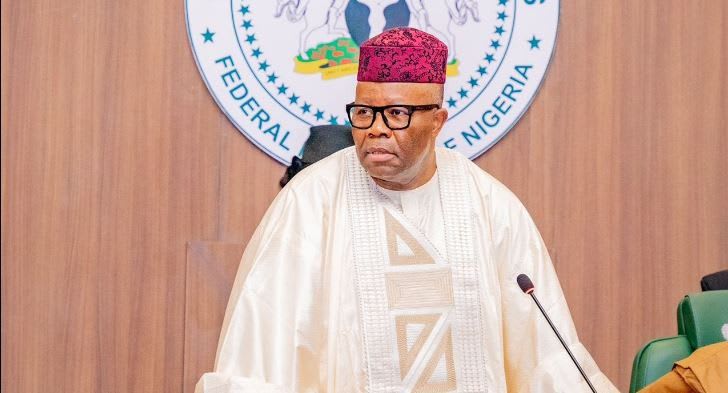
…celebrating 25 years of outstanding achievement and influence
By Kingsley Webora TANKEH
Ernst & Young (EY) Ghana has officially begun its Silver Jubilee festivities in Accra, marking 25 years of providing outstanding professional services and playing a role in Ghana's economic development.
Under the theme, 'EY’s 25 Years in Ghana: A Story of Excellence and Impact,' the anniversary represents a major milestone for EY — one of the leading global firms offering services in Assurance, Strategy and Transactions, Tax, and Consulting. Since its founding in 2000, EY Ghana has been instrumental in influencing the nation's business environment, promoting innovation, and creating a legacy based on trust, integrity, and perseverance.
The event launch gathered clients, former students, regulators, and interested parties to consider EY Ghana's progress and its impact on both the private and public sectors. The previous Country Managing Partner, Ferdinand, provided an engaging overview, emphasizing the company's development, obstacles, and successes over the last two and a half decades.
Delivering the main speech, well-known corporate governance specialist and Chairman of MTN Ghana, Dr. Ishmael Yamson, highlighted the lasting principles that have shaped EY Ghana's achievements. "Today, we come together not only to mark an achievement but to recognize the essence of perseverance, creativity, and teamwork that has characterized EY Ghana throughout its 25-year journey," he said.
He attributed the company's expansion to the commitment of its employees, the confidence of its customers, and the assistance from its former associates.
In his speech, Emmanuel Adekahlor, Country Managing Partner at EY Ghana, highlighted the company's contributions through three main areas: client support, employee growth, and involvement in the community. "For the last 25 years, EY Ghana has assisted businesses with change initiatives, tax adherence, financial reporting, strategy, and auditing. We have also worked alongside government bodies to reinforce organizations and influence policy," he mentioned.
EY Ghana remains committed to assisting major regulatory bodies such as the ICAG, SEC, GSE, BOG, and NIC in promoting governance and compliance throughout the financial sector.
Being a people-focused organization, EY Ghana continues to focus on closing the skills gap by hiring graduates and offering training initiatives that provide young professionals with the skills needed to succeed in an ever-changing global economy. Several former participants of these programs now occupy leadership positions across various sectors in Ghana and internationally.
Outside the boardroom, EY Ghana's influence reaches communities via its global corporate responsibility initiative, EY Ripples. So far, the company has engaged more than 1,000 young individuals through programs like 'Sponsor a Child', academic sponsorships, future skills development, and community engagement efforts.
Looking forward, Mr. Adekahlor highlighted EY Ghana's forward-looking approach: "Over the next 25 years, we are ready to increase our speed. Having a strong base established, we are focusing on innovative technologies such as AI and eco-friendly solutions to support our clients in growing and adjusting within a quickly changing environment."
He ended by thanking EY Ghana's clients, regulators, former employees, and team members for their consistent support and collaboration. EY Ghana's Silver Jubilee festivities will extend throughout the year, featuring a range of activities such as an alumni networking cocktail, a corporate gala, a year-end thanksgiving ceremony, and the publication of a commemorative book detailing the company's journey from 2000 to 2025.
EY Ghana
EY Ghana is part of EY Global Limited, a private company based in the UK that is limited by guarantee. The firm has been operating in Ghana since 2000, offering services in Assurance, Strategy and Transactions, Tax, and Consulting. EY operates in more than 150 countries, supporting clients in expanding, evolving, and functioning effectively, while fostering trust and assurance in financial markets and global economies.
Provided by SyndiGate Media Inc.Syndigate.info).






 Dar es Salaam. Tanzania is being encouraged to implement deliberate economic policies aimed at creating dollar billionaires and enhancing its global economic influence. According to a new wealth report, the country currently has only one dollar billionaire and a limited number of high-net-worth individuals. The Africa Wealth Report 2023 indicates that Tanzania has 2,400 individuals with a net worth exceeding $1 million. Out of these, only six have assets above $100 million, while the country has just one billionaire despite being the second-largest economy in East Africa. Also read: 435 Tanzanians join the billionaires' club - The Citizen Tanzania While the number of millionaires has risen by 20 percent over the past decade, economists believe this figure could be much higher if the country had strategic policies to support fast-growing local investors capable of expanding into international markets. "The government could significantly boost some of our wealthy entrepreneurs by matching or even partially matching their capital. That alone could reduce our reliance on imports," said Dar es Salaam-based entrepreneur Amina Salum. Experts cite the United States and China as examples of countries that have used state support to create global economic powerhouses. In 2024 alone, the US government allocated over $180 billion in subsidies to domestic companies. Firms such as Boeing, Intel, Amazon and Tesla have benefited from subsidies, tax exemptions and government-backed loans to support research, manufacturing and exports. Such policies have enabled the US to remain a global tech leader, create millions of jobs and use multinational corporations as ambassadors of national influence. China, through institutions like the China Development Bank, has extended low-interest loans and subsidies to companies such as CCCC and China Railway Engineering Corporation, enabling them to execute infrastructure projects across Africa and Asia. Backed by their government, these companies have expanded aggressively, securing contracts in many countries, strengthening China’s global economic influence. Level playing field no longer enough Tanzania has long promoted a “level playing field” approach for all businesses. But analysts say this neutral policy risks holding back local firms with the potential to create wealth and export influence. "Tanzania needs a strategy to support businesses that have proven capacity to create jobs, grow exports and increase tax revenues," said Prof Abel Kinyondo, an economist at the University of Dar es Salaam. He said targeted support could include direct financial subsidies, time-limited tax relief to reduce operating costs and credit guarantees to help companies access large-scale capital. "Strategic preferential treatment works. Ethiopia is already applying it in aviation. Their national airline is now among the best in Africa because it enjoys specific government support," he said. Prof Kinyondo emphasized the need for strong oversight and transparency, saying only experienced, high-performing entrepreneurs should be considered for such support. Another economist, Prof Dickson Pastory of the College of Business Education, said empowering local investors can also enhance national security by reducing dependency on external suppliers for essential goods. "For crucial sectors, supporting domestic production guarantees supply. It also improves Tanzania’s competitiveness in the global economy," he said. While financial subsidies may be challenging for developing countries, Prof Pastory said tax exemptions could achieve similar results. "Reducing tax burdens allows businesses to expand and create more jobs, ultimately boosting national GDP," he noted. BoT support mechanisms already in place The Bank of Tanzania (BoT) has on several occasions expressed willingness to support local businesses through the Export Credit Guarantee Scheme (ECGS) and the SME Credit Guarantee Scheme (SME-CGS). These aim to help private-sector players with bankable projects access financing even when they lack sufficient collateral. In June 2023, at the height of the dollar shortage, BoT governor Emmanuel Tutuba said the central bank had taken steps to encourage domestic production and promote import substitution. He said the BoT board had visited several strategic sites to assess opportunities to boost exports and foreign exchange earnings. "We wanted to know what investors need to scale up production and exports, especially in terms of financial support." Provided by SyndiGate Media Inc. (Syndigate.info).
Dar es Salaam. Tanzania is being encouraged to implement deliberate economic policies aimed at creating dollar billionaires and enhancing its global economic influence. According to a new wealth report, the country currently has only one dollar billionaire and a limited number of high-net-worth individuals. The Africa Wealth Report 2023 indicates that Tanzania has 2,400 individuals with a net worth exceeding $1 million. Out of these, only six have assets above $100 million, while the country has just one billionaire despite being the second-largest economy in East Africa. Also read: 435 Tanzanians join the billionaires' club - The Citizen Tanzania While the number of millionaires has risen by 20 percent over the past decade, economists believe this figure could be much higher if the country had strategic policies to support fast-growing local investors capable of expanding into international markets. "The government could significantly boost some of our wealthy entrepreneurs by matching or even partially matching their capital. That alone could reduce our reliance on imports," said Dar es Salaam-based entrepreneur Amina Salum. Experts cite the United States and China as examples of countries that have used state support to create global economic powerhouses. In 2024 alone, the US government allocated over $180 billion in subsidies to domestic companies. Firms such as Boeing, Intel, Amazon and Tesla have benefited from subsidies, tax exemptions and government-backed loans to support research, manufacturing and exports. Such policies have enabled the US to remain a global tech leader, create millions of jobs and use multinational corporations as ambassadors of national influence. China, through institutions like the China Development Bank, has extended low-interest loans and subsidies to companies such as CCCC and China Railway Engineering Corporation, enabling them to execute infrastructure projects across Africa and Asia. Backed by their government, these companies have expanded aggressively, securing contracts in many countries, strengthening China’s global economic influence. Level playing field no longer enough Tanzania has long promoted a “level playing field” approach for all businesses. But analysts say this neutral policy risks holding back local firms with the potential to create wealth and export influence. "Tanzania needs a strategy to support businesses that have proven capacity to create jobs, grow exports and increase tax revenues," said Prof Abel Kinyondo, an economist at the University of Dar es Salaam. He said targeted support could include direct financial subsidies, time-limited tax relief to reduce operating costs and credit guarantees to help companies access large-scale capital. "Strategic preferential treatment works. Ethiopia is already applying it in aviation. Their national airline is now among the best in Africa because it enjoys specific government support," he said. Prof Kinyondo emphasized the need for strong oversight and transparency, saying only experienced, high-performing entrepreneurs should be considered for such support. Another economist, Prof Dickson Pastory of the College of Business Education, said empowering local investors can also enhance national security by reducing dependency on external suppliers for essential goods. "For crucial sectors, supporting domestic production guarantees supply. It also improves Tanzania’s competitiveness in the global economy," he said. While financial subsidies may be challenging for developing countries, Prof Pastory said tax exemptions could achieve similar results. "Reducing tax burdens allows businesses to expand and create more jobs, ultimately boosting national GDP," he noted. BoT support mechanisms already in place The Bank of Tanzania (BoT) has on several occasions expressed willingness to support local businesses through the Export Credit Guarantee Scheme (ECGS) and the SME Credit Guarantee Scheme (SME-CGS). These aim to help private-sector players with bankable projects access financing even when they lack sufficient collateral. In June 2023, at the height of the dollar shortage, BoT governor Emmanuel Tutuba said the central bank had taken steps to encourage domestic production and promote import substitution. He said the BoT board had visited several strategic sites to assess opportunities to boost exports and foreign exchange earnings. "We wanted to know what investors need to scale up production and exports, especially in terms of financial support." Provided by SyndiGate Media Inc. (Syndigate.info). Artificial intelligence is set to become "a key driver for China's modernization," according to Huachuang Securities, aligning with the positive perspective of Morgan Stanley, UBS, and other institutions.
Artificial intelligence is set to become "a key driver for China's modernization," according to Huachuang Securities, aligning with the positive perspective of Morgan Stanley, UBS, and other institutions.












